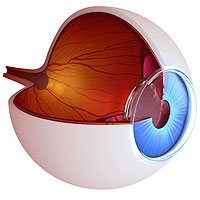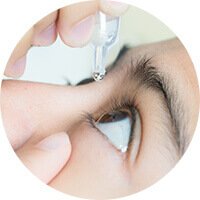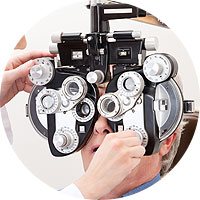Before having any kind of procedure, it is always good practice to get a comprehensive understanding of the process. This will ensure that the patient and the doctor are on the same page, eliminating any doubts or questions. Cataract surgery is extremely safe and effective, which it should be, considering 68.3% of Americans who are 80+ had cataracts in 2010. (National Eye Institute) If that number is indicative of the whole country then there must be a great number of people in Pennsylvania looking to correct their vision.
Although cataracts can be scary and unnerving, the good news is that there is a surgery that will restore the vision lost due to the clouding of the lens. The Eye Care Specialists offers first-rate cataract surgery in the state of Pennsylvania.
Before the Surgery
Prior to your cataract surgery, you will receive an exam that will evaluate your eyes as well as measure them to ensure optimal results. The surgeon will determine the range of nearsightedness, farsightedness, and/or astigmatism. With exact measurements of the cornea, the surgeon can select the proper power of the intraocular lens, which will result in your restored eyesight. Before your cataract surgery, you and your eye doctor will discuss which type of intraocular lens (IOL) will work best for you.
The Cataract Surgery Procedure Itself
The first step of the surgery begins with the doctor dilating your pupils. You will receive a local anesthetic to numb the area or be given a mild sedative to help you relax. During the surgery itself, the clouded lens is removed and replaced with a clear artificial lens. The methodology for the procedure varies, but most surgeries are completed using an ultrasound probe, or advanced laser technique. Once the cloudy lens is removed, the artificial lens is implanted.
What’s Next?
After the procedure, your vision will be blurry as the eye heals itself and adjusts. Once a few days have passed, expect your vision to begin improving steadily. With a follow-up doctor’s appointment two days, one week and one month after the surgery, there are multiple opportunities to monitor the healing process and field any questions.
If you feel mild discomfort soon after the surgery, that is completely normal and nothing to worry about it. Your doctor may give you an eye patch to keep the eye protected, as well as prescribe eye drops or other medication to avoid infection and inflammation. The complete healing process should take about eight weeks.
Be sure to contact the doctor if you experience any vision loss, persistent pain increased eye redness or new spots in front of the eyes. Most people need glasses after cataract surgery, your doctor will let you know when your eyes are ready to be tested for a final prescription for eyeglasses. This is usually between one and three months after surgery. If both of your eyes have cataracts, the surgeon will schedule the second surgery after the first eye has completely healed.
Schedule with Us
You don’t have to suffer from cataracts any longer, visit us at one of our many locations in Pennsylvania and let’s get you scheduled. Cataract surgery is safe and effective, and at Eye Care Specialists we make the process as painless as possible. So, let’s talk!

















